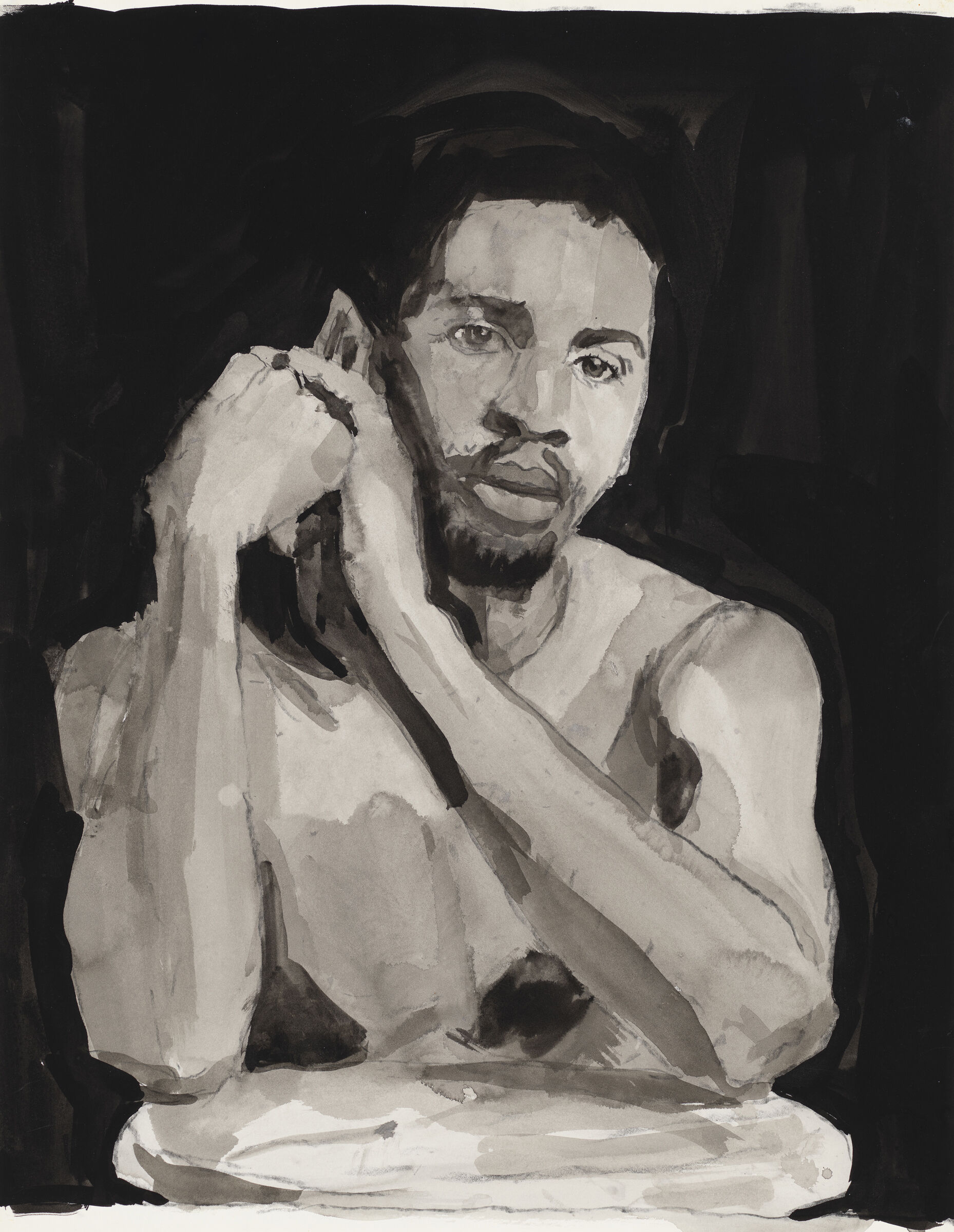What It Becomes | Art & Artists
Aug 24, 2024–Jan 12, 2025
What It Becomes | Art & Artists
Darrel Ellis
3
Darrel Ellis based this drawing on a portrait taken of him in 1981 by Robert Mapplethorpe, a white photographer whose representations of Black men have often been criticized as fetishistic. Ellis described the black-and-white photograph as both “haunt[ing]” and a “struggle to resist.” Despite—or perhaps because of—his conflicting sentiments towards the image, he chose to return to it in 1989 when Nan Goldin invited him to participate in Witnesses: Against Our Vanishing, an exhibition about artists’ personal relationships to AIDS. Though it is unclear whether Ellis had learned of his own HIV-positive diagnosis at the time, many in his artistic circle had died of AIDS-related complications, including Mapplethorpe. As an artist who frequently reworked photographs through drawing, Ellis reanimated what he considered to be a “frozen image” with his own hand. Working with brushed ink and soft graphite, Ellis translated the older artist’s photograph into a self-portrait that offers both an introspective study and an act of reclamation.

